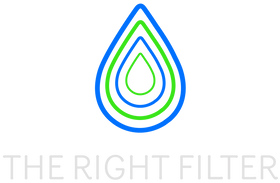When I started out in the water filtration industry, I thought it would be pretty obvious what filter to use. I mean, we’ve been filtering water since the dawn of civilization so how hard could it be?
Oh boy. I’m an idiot. Turns out water filtration comes in two scales. There’s the Point of Entry (POE), where the water supply enters a building, and Point of Use (POU), where a human comes into contact with the water.
And that’s where things get…complicated.

Your water supply, especially if you live in a city, can be anywhere from 10 to 100 miles away. Between where it starts and the POE, there could be nothing but pristine new pipes. It could also have piping from the Civil War, if you live near Philly. So that’s one complication.
Now what about the building itself? Between the POE and POU, there could be new, unblemished pipes. Or there could be a tiny 6 inch piece lead pipe between the POE and just your kitchen faucet. So, yeah, real complicated.
So what do people ‘in the industry’ do? They rely on water testing. Instead of trying to solve the whole problem, they focus on the part of the problem they can measurably address.
So, that’s the solution, right? Just do a water test and pick a water filter to solve that problem, right?
Ooooh, yeah, still complicated.

Most water tests are poorly regulated and tested. A fancy expensive test can claim to detect all kinds of things, but if you don’t use it exactly right, it could give you a false positive or negative. A super cheap one can fall into the same problem.
Water testing kits for consumers are already quite advanced and accessible. These kits typically cover a range of parameters like pH levels, contaminants, and specific elements. They often include easy-to-use testing strips, color-changing reagents, or electronic meters. One recent trend was the integration of smartphone apps with testing kits, providing users with a more user-friendly experience and instant analysis. This allows people to track and monitor their water quality over time.
However, keep in mind that technology advances rapidly, and there might be even more sophisticated and user-friendly options available now. But even this kind of testing comes with challenges when untrained personnel are involved.
For example:
Accuracy Issues: Performing water tests correctly requires precision and adherence to specific procedures. Untrained individuals may misinterpret instructions or mishandle testing equipment, leading to inaccurate results and potentially missing harmful contaminants.
Lack of Knowledge: Understanding the significance of different contaminants and their permissible levels is crucial in interpreting test results. Untrained personnel may struggle to grasp the complexity of water quality standards, leading to misinterpretation or oversight of potential risks.
Limited Scope of Testing: Untrained individuals may use basic testing kits that cover only a few parameters. This limited scope may overlook certain contaminants, providing a false sense of security about the water's overall safety.
Inconsistent Sampling: Collecting water samples for testing requires proper technique to ensure representativeness. Untrained individuals may collect samples inconsistently, affecting the reliability of the results.
Equipment Maintenance: Testing kits and equipment require proper maintenance to ensure accurate and reliable results. Untrained personnel might neglect equipment care, leading to degraded performance and unreliable readings.
Response to Results: Even if accurate results are obtained, untrained individuals might struggle to understand the implications and take appropriate action. Timely and appropriate response to water quality issues is crucial for public health.
Regulatory Compliance: There may be legal and regulatory requirements for water testing in certain contexts. Untrained personnel might inadvertently overlook these requirements, leading to non-compliance and potential legal consequences.

So people in the industry have settled on a few water testing firms whose claims and products have been proven to be stable, easy to use, and relatively inexpensive.
The one we recommend at The Right Filter is the National Testing Laboratories in Cleveland, OH at https://watercheck.com/. NTL labs is the benchmark for consumers and industry pros. Nothing has taken that crown, yet.
If you go to their site, you’ll see there are different kits you can use, depending on your situation and your concerns. Based on their findings, you can then figure out what type of filtration you need.
If you’d like, you can also schedule some time with someone at The Right Filter and we can walk you through the findings and recommend some filters for you. They may not be the ones we carry on our site, but that doesn’t mean we can’t point you in the right direction.
